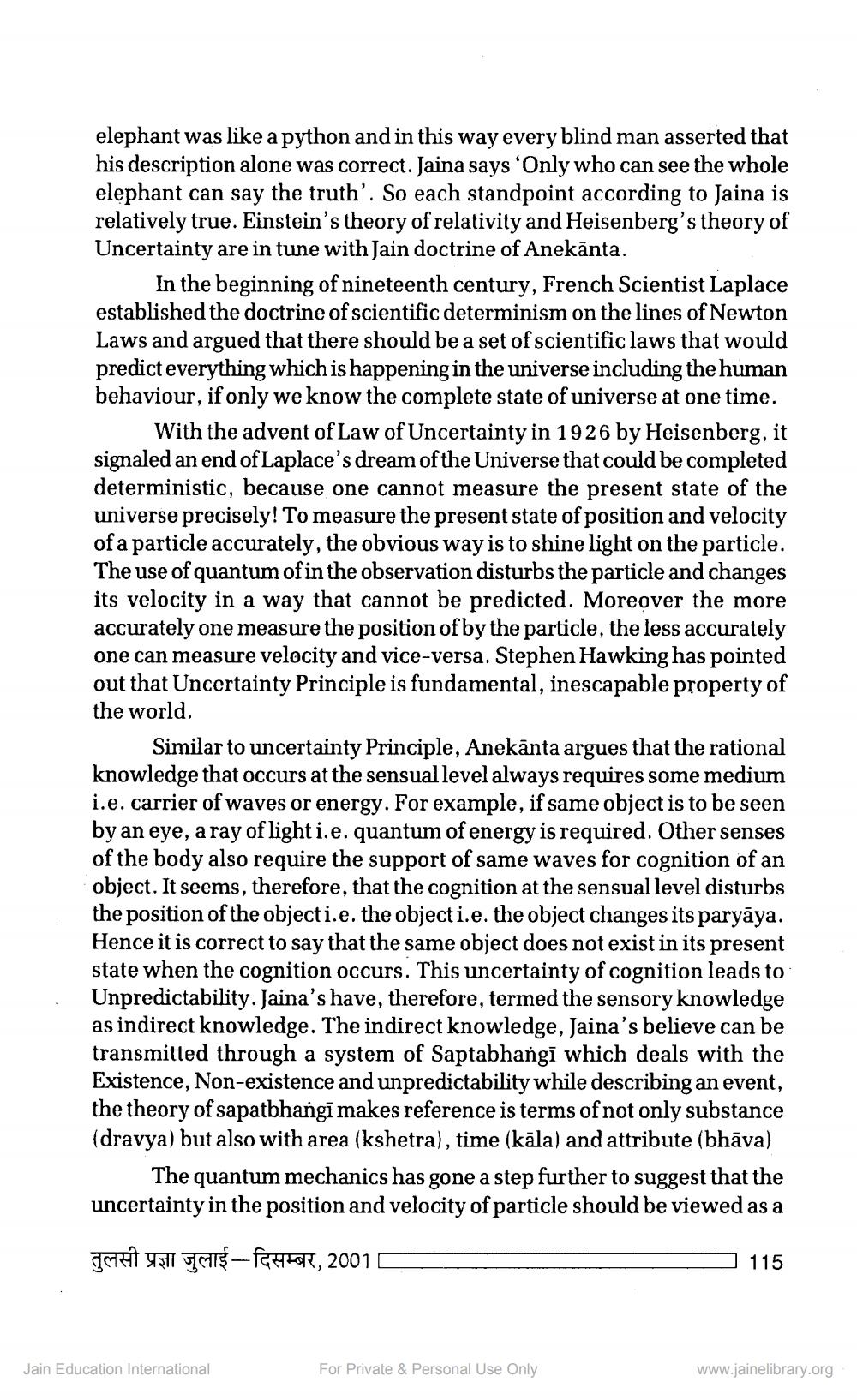________________
elephant was like a python and in this way every blind man asserted that his description alone was correct. Jaina says 'Only who can see the whole elephant can say the truth'. So each standpoint according to Jaina is relatively true. Einstein's theory of relativity and Heisenberg's theory of Uncertainty are in tune with Jain doctrine of Anekānta.
In the beginning of nineteenth century, French Scientist Laplace established the doctrine of scientific determinism on the lines of Newton Laws and argued that there should be a set of scientific laws that would predict everything which is happening in the universe including the human behaviour, if only we know the complete state of universe at one time.
With the advent of Law of Uncertainty in 1926 by Heisenberg, it signaled an end of Laplace's dream of the Universe that could be completed deterministic, because one cannot measure the present state of the universe precisely! To measure the present state of position and velocity of a particle accurately, the obvious way is to shine light on the particle. The use of quantum of in the observation disturbs the particle and changes its velocity in a way that cannot be predicted. Moreover the more accurately one measure the position of by the particle, the less accurately one can measure velocity and vice-versa. Stephen Hawking has pointed out that Uncertainty Principle is fundamental, inescapable property of the world.
Similar to uncertainty Principle, Anekānta argues that the rational knowledge that occurs at the sensual level always requires some medium i.e. carrier of waves or energy. For example, if same object is to be seen by an eye, a ray of light i.e. quantum of energy is required. Other senses of the body also require the support of same waves for cognition of an object. It seems, therefore, that the cognition at the sensual level disturbs the position of the object i.e. the object i.e. the object changes its paryāya. Hence it is correct to say that the same object does not exist in its present state when the cognition occurs. This uncertainty of cognition leads to Unpredictability. Jaina's have, therefore, termed the sensory knowledge as indirect knowledge. The indirect knowledge, Jaina's believe can be transmitted through a system of Saptabhangī which deals with the Existence, Non-existence and unpredictability while describing an event, the theory of sapatbhangī makes reference is terms of not only substance (dravya) but also with area (kshetra), time (kāla) and attribute (bhāva)
The quantum mechanics has gone a step further to suggest that the uncertainty in the position and velocity of particle should be viewed as a
get ya ICTS — FG4, 2001
-
115
Jain Education International
For Private & Personal Use Only
www.jainelibrary.org




